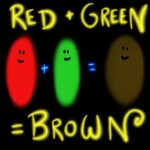When you ponder the vastness of the English language, a natural curiosity arises: What Is The Longest Word? While a definitive answer might seem elusive, journeying into the realm of lengthy lexicon reveals fascinating insights into word formation, scientific terminology, and even playful coinages. Forget stumbling over short sentences; we’re diving deep into the world of linguistic leviathans.
The Colossus of Chemistry: A Word Beyond Dictionaries
If we’re talking about sheer length, prepare to be astounded. The undisputed champion, a word so long it barely fits on a page, is the chemical name for titin. This protein, vital to muscle elasticity in humans, boasts a name that stretches to a staggering 189,819 letters. Yes, you read that correctly. Pronouncing it in full could take upwards of three hours!
Dictionaries, in their practical wisdom, understandably omit such behemoths. Space is a constraint, and the average person rarely needs to reel off complex chemical nomenclature. However, the existence of the titin protein name underscores the boundless capacity of language to describe even the most intricate details of our world.
Dictionary Dynamos: Long Words You Might Actually Encounter
While we might not casually drop the titin protein name into conversation, English dictionaries are home to a collection of impressively long words that are, at least theoretically, usable. Let’s explore some of these lexical giants:
Pneumonoultramicroscopicsilicovolcanoconiosis: The Lung Disease Legend
Topping the list of longest words commonly found in dictionaries is pneumonoultramicroscopicsilicovolcanoconiosis. Clocking in at 45 letters, this word describes a lung disease caused by inhaling very fine silica particles, specifically from a volcano. While its usage is rare, often cited more for its length than its medical relevance, it holds the crown for dictionary-recognized length.
Pseudopseudohypoparathyroidism: A Medical Mimic
Next up is pseudopseudohypoparathyroidism, a 30-letter term from the medical field. This word refers to a milder, inherited condition that mimics the symptoms of pseudohypoparathyroidism but without the abnormal calcium and phosphorus levels in the blood. It’s a testament to the precision required in medical terminology.
Floccinaucinihilipilification: The Art of Uselessness
For a word that describes something as worthless, floccinaucinihilipilification at 29 letters is ironically quite valuable – at least as an example of a long word! It signifies the act of estimating something as valueless. Its rarity in everyday language highlights the sometimes playful and even whimsical nature of word creation.
Antidisestablishmentarianism: A Word of Opposition
Historically significant, antidisestablishmentarianism with 28 letters originally referred to opposition to the disestablishment of the Church of England. Today, its meaning has broadened to encompass any opposition to the withdrawal of government support from a particular church or religion. It demonstrates how language evolves with societal and political changes.
Supercalifragilisticexpialidocious: The Word of Mary Poppins Magic
Perhaps the most famous long word on our list, supercalifragilisticexpialidocious at 34 letters gained widespread recognition thanks to the movie Mary Poppins. Described as a word to use “when you have nothing to say,” it embodies playful invention and the sheer fun of language. Its inclusion in some dictionaries, though not all, shows the evolving boundaries of lexicography.
Beyond Length: Exploring Other Word Records
The quest for the “longest word” isn’t just about letter count. English boasts other fascinating word records based on different criteria:
Incomprehensibilities: The Longest in Common Usage (Once)
Incomprehensibilities, with 21 letters, held the title in the 1990s as the longest word considered to be “in common usage.” While usage fluctuates and language evolves, it represents a benchmark in the study of word frequency and length in everyday communication.
Strengths: A Consonant Cluster
Short but mighty, strengths, with only nine letters, achieves a Guinness World Record for its consonant dominance. With eight consonants out of nine letters, it’s a testament to the dense sound structures possible in English. It’s also notably one of the longest monosyllabic words in the language.
Euouae: A Vowel Victory
In stark contrast, euouae, a mere six letters long, is composed entirely of vowels. This musical term from medieval times holds two Guinness World Records: longest word with only vowels and most consecutive vowels in a word.
Unimaginatively & Honorificabilitudinitatibus: Alternating Rhythms
Unimaginatively showcases vowel-consonant alternation, a pleasing phonetic pattern. While not the longest in this category, it highlights this linguistic feature. That honor goes to honorificabilitudinitatibus, a 27-letter word meaning “with honorableness,” demonstrating the potential for complex alternating patterns in longer words.
Tsktsk: Silence of the Vowels
Tsktsk, an onomatopoeic word mimicking disapproval, is the longest word devoid of vowels. It’s a reminder that vowels, though crucial, are not always essential for word formation, especially in expressive interjections.
Uncopyrightable & Subdermatoglyphic: No Letter Repeats
Uncopyrightable and subdermatoglyphic are isograms – words with no repeating letters. While uncopyrightable is more commonly understood, subdermatoglyphic, referring to something beneath the skin ridges of fingers and toes (17 letters), takes the crown for longest non-repeating letter word.
Sesquipedalianism: Love of Long Words
Finally, sesquipedalianism (14 letters) aptly describes the very tendency to use long words. If you’ve enjoyed this exploration of lexical length, you might just be exhibiting a touch of sesquipedalianism yourself!
The Length and Breadth of Language
The search for the “longest word” is more than just a linguistic trivia pursuit. It’s a journey into the fascinating construction of language, the specialized vocabularies of science and medicine, and the playful creativity that words can embody. While the 189,819-letter protein name might remain largely unspeakable, the dictionary’s longest words and other word curiosities offer a rich appreciation for the sheer scale and wonder of the English lexicon.
